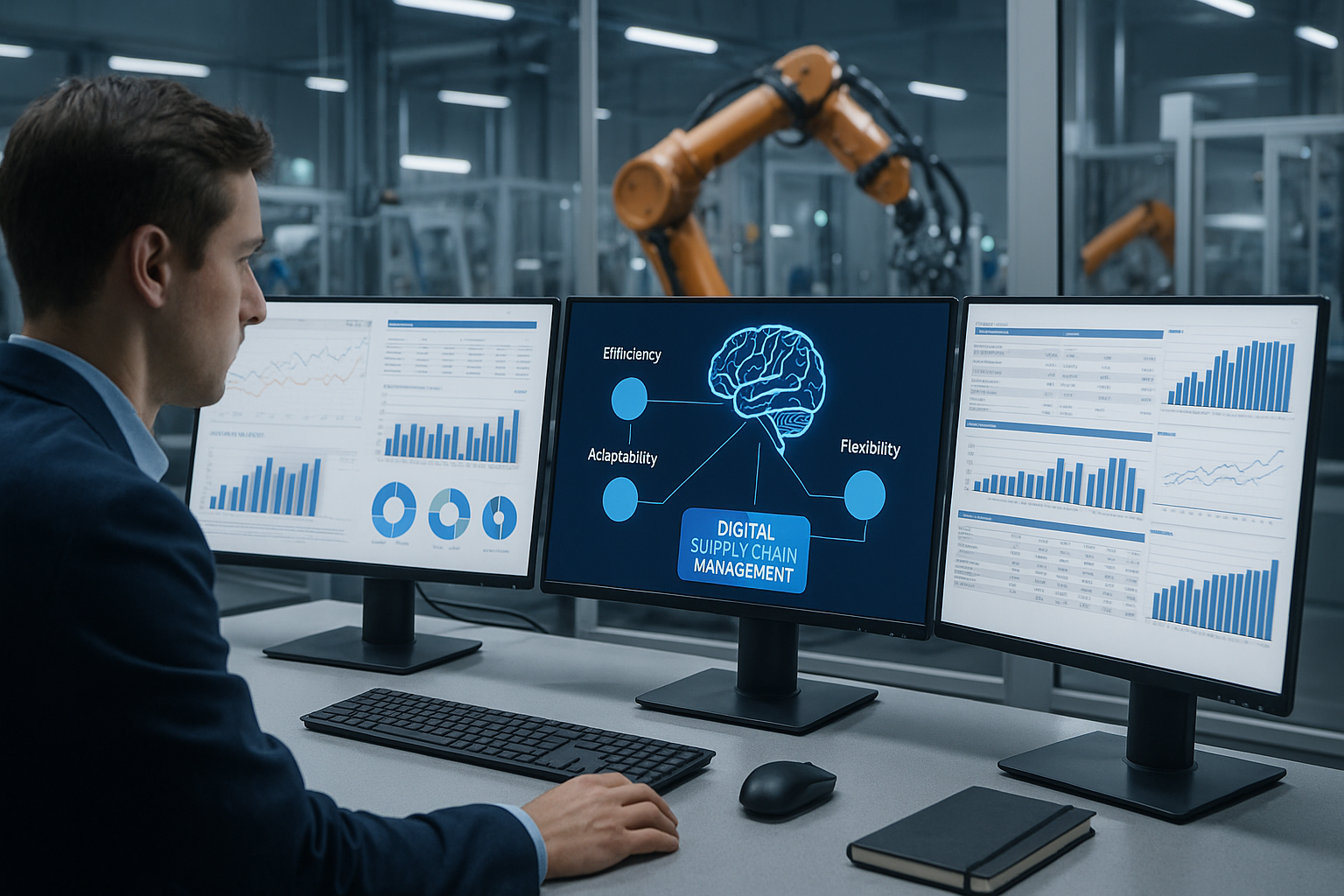AI integration proves crucial for digital supply chain transformation
Technological innovations such as IoT sensors, cloud-based analytics, and automation improved supply chain operations, but their benefits became significant only when AI applications such as predictive maintenance, dynamic scheduling, and data-driven decision-making were integrated. The mediating role of AI-enabled firms to reduce order-processing times by 20 percent, improve resilience to disruptions, and achieve higher levels of operational efficiency.

In a landmark investigation into the future of industrial supply networks, researchers reveal how artificial intelligence is transforming the relationship between technological innovations and digital supply chain performance. Their findings highlight that firms prioritizing adaptability and flexibility in tandem with AI integration are better positioned to thrive in volatile markets.
The study, titled “The Impact of Technological Innovations on Digital Supply Chain Management: The Mediating Role of Artificial Intelligence: An Empirical Study,” is published in Logistics. Conducted within Jordan’s industrial sector, the research examines how emerging technologies, ranging from IoT platforms and blockchain to predictive analytics, boost efficiency and competitiveness when reinforced by AI as a mediating force.
AI as the critical link between technology and performance
The researchers seek to understand whether technological advancements alone can deliver superior digital supply chain management or if a mediating factor is necessary to convert these investments into tangible gains. Their message is clear: artificial intelligence acts as the bridge that transforms technological innovations into real improvements in adaptability, resilience, and responsiveness.
The mixed-methods study combined a survey of professionals from small, medium, and large industrial firms in Jordan with in-depth interviews, ensuring both statistical rigor and practical insight. Using structural equation modeling, the team identified that adaptability and flexibility exert strong direct and indirect effects on digital supply chain performance through AI adoption. Firms that embedded AI into their digital platforms achieved faster decision-making, better forecasting, and more efficient inventory and logistics processes.
Technological innovations such as IoT sensors, cloud-based analytics, and automation improved supply chain operations, but their benefits became significant only when AI applications such as predictive maintenance, dynamic scheduling, and data-driven decision-making were integrated. The mediating role of AI-enabled firms to reduce order-processing times by 20 percent, improve resilience to disruptions, and achieve higher levels of operational efficiency.
Efficiency alone fails without AI-driven adaptability
One of the study’s most revealing findings is that efficiency, traditionally seen as a cornerstone of supply chain excellence, no longer guarantees improved performance in digital networks without AI integration. The research showed that while efficiency contributes to AI adoption, its direct effect on digital supply chain management was insignificant.
The authors suggest that in today’s complex industrial landscape, firms increasingly prioritize flexibility and adaptability over pure cost-cutting or time savings. Companies that focused solely on efficiency without leveraging AI struggled to convert incremental operational gains into broader performance improvements.
This insight underscores a shift in supply chain strategy. Traditional models centered on reducing waste and optimizing lead times now need to be supported by adaptive decision-making systems. AI applications, such as machine learning-based demand forecasting, autonomous routing, and predictive analytics, provide firms with the ability to respond rapidly to market fluctuations, thereby elevating the impact of technological investments.
The findings challenge conventional wisdom and encourage managers to reconsider their reliance on efficiency metrics. Instead, the authors argue for building AI-enabled dynamic capabilities that empower organizations to reconfigure processes and sustain competitiveness in uncertain conditions.
Guidance for industry, policymakers and developers
The study delivers targeted recommendations for business leaders, government authorities, and technology providers. For industrial managers, the researchers advise establishing AI competency centers that bring together supply chain experts, data scientists, and IT teams to experiment with and scale up applications like predictive maintenance and smart inventory management. Continuous staff training in AI tools and data literacy is deemed crucial for ensuring effective adoption and avoiding implementation bottlenecks.
For government policymakers, the paper highlights the need for incentives such as tax credits and grants to lower the financial barriers to AI adoption. The authors advocate for national data-sharing standards and investments in secure digital infrastructure to improve interoperability among diverse platforms. Public–private pilot projects, they note, can demonstrate AI’s value to smaller enterprises that often face resource constraints.
Technology developers are urged to prioritize interoperability and open application programming interfaces (APIs) so that AI solutions can integrate seamlessly with existing supply chain platforms. User-friendly interfaces and embedded training modules are recommended to accelerate adoption and minimize disruption during transitions. Co-creation workshops involving supply chain professionals are also proposed to ensure that the solutions align with operational needs and deliver practical value.
A call for broader research and policy support
While the study offers actionable strategies, it acknowledges its focus on Jordan’s electronics manufacturing sector as a limitation. The authors stress the need for further research across industries such as healthcare, automotive, and agriculture to test whether the mediating role of AI produces similar outcomes in different technological and regulatory environments.
The researchers also call for more work on the interaction between cybersecurity measures, external stakeholder engagement, and supply chain resilience. As firms expand their use of AI in critical supply chain functions, issues such as data privacy, regulatory compliance, and sustainable innovation will become increasingly significant. Longitudinal studies, they suggest, are essential to capture the evolving impact of AI maturity on operational efficiency and sustainability over time.
The study extends the Technology–Organization–Environment framework by demonstrating that AI is not merely a supplementary tool but a fundamental driver of digital transformation in supply chains. It highlights that adaptability and flexibility, empowered by AI, are more decisive than efficiency in achieving sustained performance gains.
- FIRST PUBLISHED IN:
- Devdiscourse










